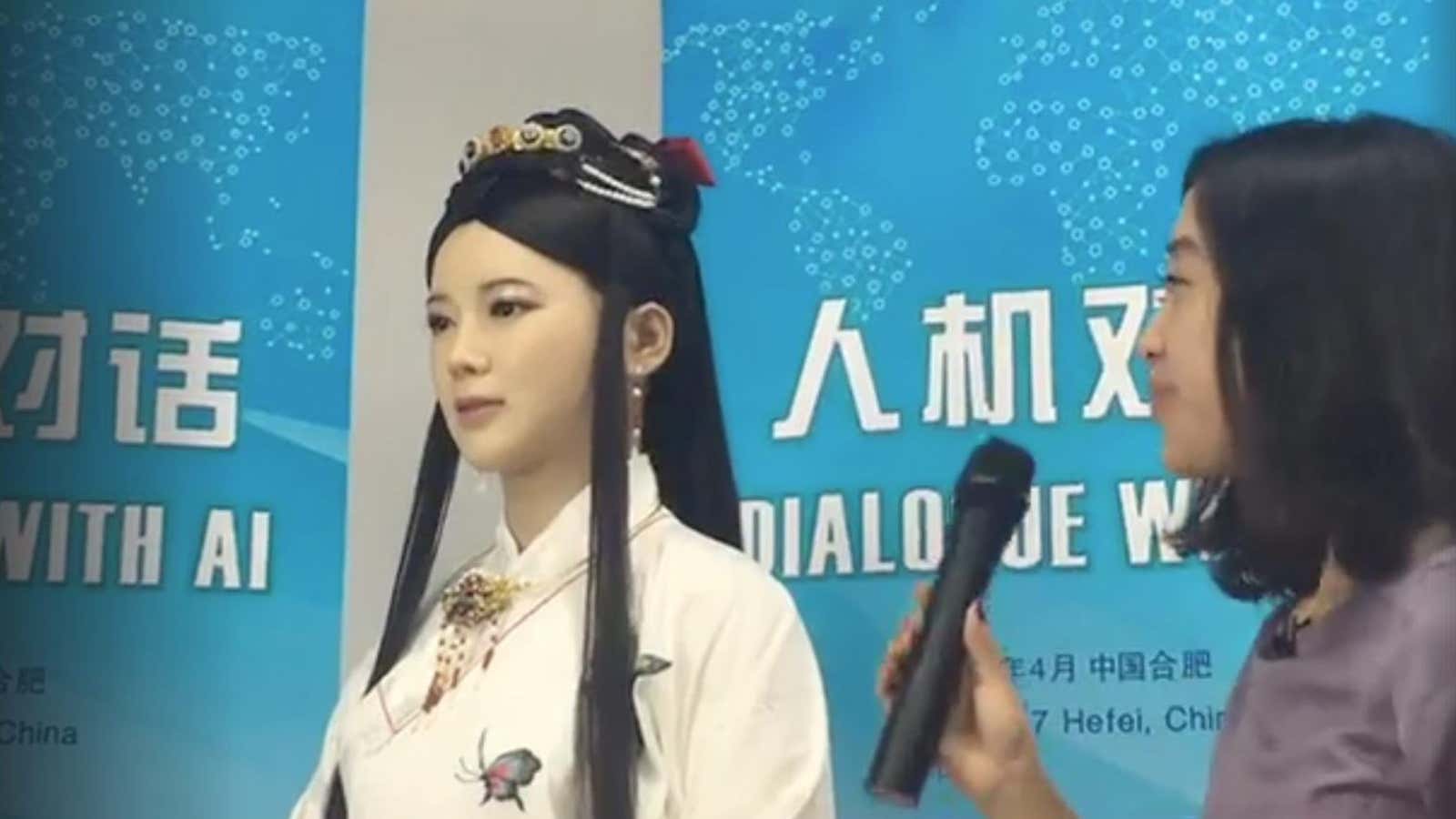If a recent interaction between a human journalist and his Chinese robot counterpart is anything to go by, it’ll be a while before a journalist job will be lost to (a robot in) China.
On Monday (April 24), Jia Jia, a Chinese-manufactured robot under development for about three years (link in Chinese), had a conversation with AI expert Kevin Kelly, the co-founder of technology magazine Wired. State-run Xinhua news agency broadcast the chat live, billing Jia Jia as a special reporter.
Jia Jia looks like a young woman in her early twenties, blinks and smiles in a fairly human way, moves her lips when she speaks, and has micro-expressions. But she had a hard time responding naturally to many of the questions posed by Kelly, sometimes taking up to 10 seconds to answer. She generally restricted herself to one- or two-word answers, not always on topic, such as when Kelly asked, “Can you tell me about Beijing?” She replied, “About you.” (Watch the full interview with Kelly here.)
She did better when asked about the location of the Great Wall, but wasn’t exactly specific, responding, “China.” In other cases, when Kelly asked, “Jia Jia, Can you tell me about New York City?” the robot said, “I am not at home.”
When it came to open-ended questions like “Jia Jia, can you tell me a story?” the robot did use one annoyingly human trait—responding with another question, “What’s your story?”
Some commenters said (link in Chinese) that the developers at Anhui-based University of Science and Technology of China, where Jia Jia was created, should have spent more time on the robot’s AI skills, rather than her appearance. The robot has a conventionally pretty face, sports an elaborately-styled hair that wouldn’t be out of place in a period drama, and is generally seen wearing a form of traditional clothing promoted in China in recent years (this is not how Chinese reporters dress).
One of the robot’s developers, Chen Xiaoping, director of the Robotics Laboratory at USTC, called the interview a success, and also blamed Skype connectivity for some of Jia Jia’s faltering answers.
It’s not the first time that China has explored using AI in journalism. Earlier this year, a 1.2-meter tall robot called “Inspire” served as an intern reporter for Xinhua during the country’s annual meeting for lawmakers and politicians. And in August, China used an AI machine to report on the Olympics for the first time, according to its co-inventor Peking University (link in Chinese). The machine produced 450 Olympic news items over the 15-day sporting event.
Prior to the chat with Kelly, Jia Jia did better conversing with a Chinese journalist in English. She answered questions about her name and age quickly, and sometimes snappily. “How old are you?” the journalist asked. “It’s a secret,” responded Jia Jia.
